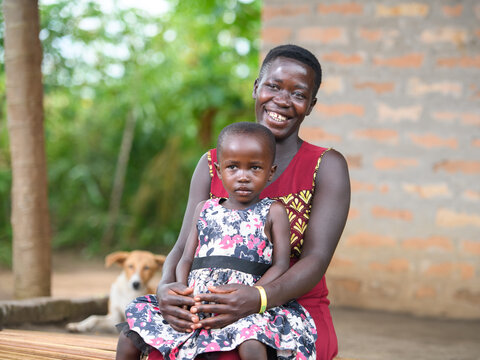OPT-SMC: Nigeria project
Facilitators and barriers to the uptake of SMC in Nigeria: a mixed method approach

SMC was adopted in Nigeria in 2014 and by 2021 was being implemented in 18 states, over four months between June and October by 143000 community drug distributors (CDDs) to a target population of 23 million children. In view of this massive scale‐up, the National Malaria Elimination Programme undertook qualitative research in five states shortly after the 2021 campaign to understand community attitudes to SMC so that these perspectives inform future planning of SMC delivery in Nigeria.
In 20 wards representing urban and rural areas with low and high SMC coverage in five states, focus group discussions were held with caregivers, and in‐depth interviews conducted with community leaders and community drug distributors. Interviews were also held with local government area and State malaria focal persons and at national level with the NMEP coordinator, and with representatives of partners working on SMC in Nigeria.
In all study areas malaria was seen as a major health concern and SMC was widely accepted as a key preventive measure. Community drug distributors (CDDs) were trusted, and their work appreciated by most caregivers. Most caregivers preferred SMC delivered door-to-door than visiting distribution points, in addition to allowing them to continue daily tasks, there was more time for the CDD to explain how to administer the treatments and advise about adverse reactions. Barriers identified included perceived side effects, lack of understanding of the purpose of SMC, unfriendly attitudes of some CDDs, and a perception by some caregivers that the drugs were ineffective or unsafe. Key informants and caregivers reported SMC distributions limited by drug shortages, with supplies running out before all children in the community had been treated. Overall, there was widespread acceptance of SMC, but strategies need to be developed to overcome specific barriers to improve delivery and uptake.
Recommendations included the need to strengthen communication about the safety and effectiveness of SMC, recruiting distributors from the local community, greater involvement of state and national level pharmacovigilance coordinators, and stricter adherence to the planned medicine allocations to avoid local shortages. The findings reinforce the importance of retaining door‐to‐door delivery of SMC.
The study was presented at the ASTMH, December 2022 conference, and at the EDCTP 3 Forum in Paris, November 2023 and has been published: N Ogbulafor et al: Facilitators and barriers to seasonal malaria chemoprevention (SMC) uptake in Nigeria: a qualitative approach. Malaria Journal (2023) 22:120
The OPT-SMC team is working with the Nigerian team to develop a second paper from the qualitative study in 5 states" project.